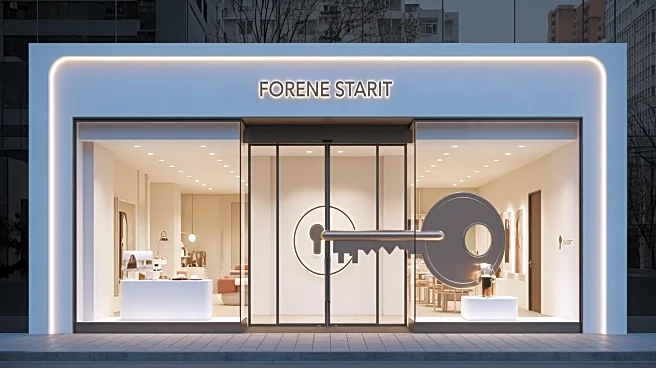What's Happening?
Gap is reopening its London flagship store in Covent Garden after closing all UK locations in 2021. This move is part of a broader strategy to revitalize the brand, which has been undergoing a multi-year
turnaround. The new store is one of three planned openings, with additional locations in Wembley and Westfield shopping center in White City set to open in December. The Covent Garden store, which Gap owns, has remained closed to avoid tax liabilities until the brand was ready to return. The reopening follows Gap's successful efforts to reinvent its brand, including hiring former Mattel executive Richard Dickson and collaborating with designer Zac Posen. These initiatives have led to seven consecutive quarters of positive comparable sales for Gap.
Why It's Important?
Gap's return to physical retail in London marks a significant milestone in its efforts to rebuild its business. The reopening is a testament to the brand's successful revitalization strategy, which has shown positive results in the U.S. market and is now expanding globally. This move could potentially strengthen Gap's market presence and consumer engagement in the UK, offering a more elevated shopping experience. The revitalization efforts, including new store designs and product offerings, aim to attract a broader customer base and enhance brand perception.
What's Next?
Gap plans to continue its expansion in the UK with additional store openings in Wembley and Westfield shopping center in White City. The brand's focus will likely remain on enhancing the physical retail experience to align with its revitalized brand image. As Gap continues to implement its turnaround strategy, it may explore further international expansion and collaborations to sustain its growth momentum.
Beyond the Headlines
Gap's strategy to keep its Covent Garden location closed until ready to reopen highlights the brand's careful financial planning and commitment to long-term growth. The focus on creating a more elevated shopping experience reflects broader retail trends towards experiential shopping, which could influence other legacy brands to adopt similar strategies.










